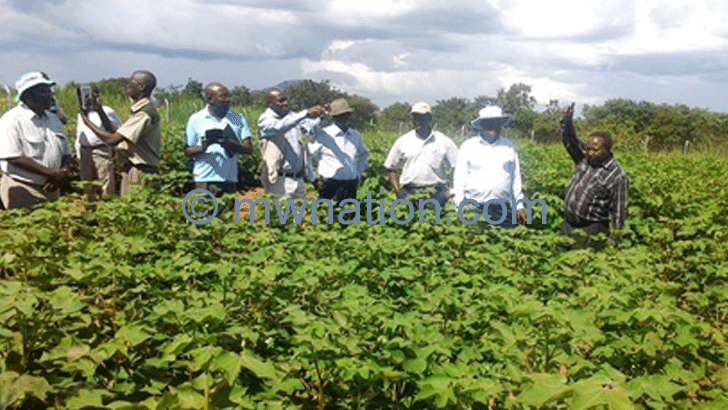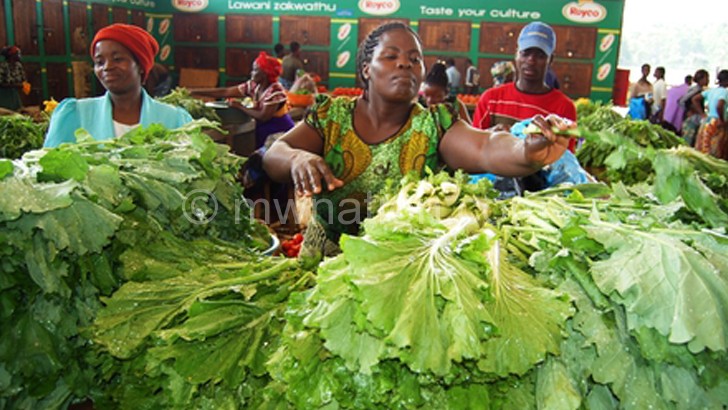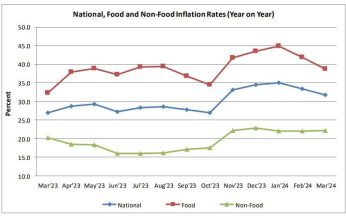Viable economic recovery plan for Malawi
By now it can be said without fear of contradiction that the Malawi economy is in doldrums and that while efforts may be underway in various forms to salvage it from complete collapse, planners are either far from a solution, or are unsure whether it will be possible to come to one.
So sad is this reality because as we have argued elsewhere, Malawi so happens now to be the least developed country in the Southern African Development Community (Sadc) and if the status quo remains so going forward, or if it deteriorates further, Malawi could actually now truly emerge the poorest country not only in the Sadc, but in the world.

The issue is not that relative poverty matters more, but that such poor economic stance relative to others is indicative of major problems, including deprivation, marginalisation, and poverty at the grassroots level.
The purpose of this note is to highlight some of the salient issues we face as a nation and hint on where one may find solutions. As some of you know, the country rankings in many cases correlate highly with realities at microeconomic level and must not simply be dismissed.
For example, Malawi’s economic stance has deteriorated significantly from the pre-1994 period as economic growth in real terms has stagnated relative to the past, the sub-Saharan Africa, and even relative to economic growth and macroeconomic performance trends in Sadc.
At present, inflation rates are discouragingly high at 24.9 percent as of December 2015, lending interest rates at commercial banks appear volatile and at times have soared to dauntingly overwhelming 40 percent, the exchange rate is volatile and has deteriorated leading to a significant erosion of household incomes whose real growth rates have gone negative at times.

Owing to imprudent fiscal and monetary policies, the macroeconomy is in a state of destabilisation and livelihoods at the grassroots level are under siege. Not surprisingly, Malawi economy’s world rankings have concomitantly deteriorated almost commensurately.
Grow economy
While these problems are grave, we have to reverse them and push back the frontiers of poverty and marginalisation, through science-based visionary, inclusive, and transformative, sound economic and social development policy implementation.
As a starting point, income in Malawi’s economy depends on how capital (machines, finances etc), land and labour are utilised in the development process. It turns out that at the end of the day, what is critical include how the country saves part of the output that is generated and how it re-invests that in the economy.
So, savings rates are important for determination of a country’s economic growth. Of course one does not save what one does not have, which implies that a country needs to use its factors of production mentioned including capital, land and labour to produce more, sell more, generate more returns, then save more and invest more. A nation that does not produce much but relies on imports will always have problems of balance of payments.
If we take time to examine the supply and demand sides of our economy (that is, to look at the nature and magnitude of our production versus consumption, which at after some assumptions can say something about our exports versus imports), one notes that the demand side of the economy has grown more rapidly than the supply side, which is not a desirable ideal.
For example, as at 2014, Malawi’s imports surpassed Malawi’s exports by almost more than $1.5 billion (about K975 billion) implying that Malawi is constantly running a huge trade deficit and likely a deterioration of balance of payments (BoP).
Contrast this with many of Malawi’s neighbours whose trade deficits are either non-existent of negligible. Certainly Malawi needs to do a lot in terms of either reducing import dependence or increasing supply.
Fiscal policies that aimed at increasing investments in the supply side of the economy, for instance those encouraging mechanisation and commercialisation of agriculture, exploration of minerals, aggressive marketing of Malawi’s tourism sector, inter alia are needed and can help boost the supply side of the economy. Thus, the tourism, mining, agriculture, manufacturing and general service sectors need huge infrastructure investments to spur their growth.
When one considers the savings rates in Malawi, one notes that while other countries for example in the Sadc, including Mozambique, Zambia, South Africa, and Swaziland have low savings rates, Malawi’s savings rates are even lower.
Between 2011 and 2014 for example, average savings rates (expressed as amounts saved as a share of the total gross domestic product (GDP) for Malawi stood at around a meagre 7.9 percent.
By contrast, savings rates for Botswana (36 percent), Mozambique (16 percent), Tanzania (17 percent), Swaziland (19 percent), and Namibia (19 percent) were significantly higher.
The implication of this is that over time, we cannot expect the economy in Malawi to perform better than or (close to) those of our neighbours simply because while they are investing more, we are not.
The government needs to rally the private sector, the civil society as well as development partners to cultivate and advance a culture of savings among Malawians and this is critical.
Cut imports
Keeping all factors constant, a country of people who think foreign goods are the best will be associated with high marginal propensities to consume imports at the expense of savings. Another factor that discourages savings is the high population growth rate.
Malawi is among few countries in the Sadc which still boast population growth rates of more than three percent per annum. Typically, most of the countries that have higher savings rates in the Sadc have low population growth rates and more often these stand at below 2.5 percent although there are exceptions.
Higher population growth rates bring in more consumers than producers into the economy who then increase the share of income that is consumed at the expense of savings (unless the economy is flexible enough to increase its rate of production immediately).
Malawi is likely to gain more from controlling the rates of population growth going forward given that its supply side is stagnating.
While agriculture is not everything and cannot be everything for economic growth as we forge into the future, our starting point still has to be agriculture after all if we can fail to use that which we have in abundance already, it will be very unlikely we will succeed in the new territory which we must go into.
Boost agro sector
We need to use agriculture to venture into serious mineral explorations, significant tourism sector investments, foreign direct investment attractions and many others.
At present even agriculture itself is underperforming and is almost mainly subsistence with a huge proportion of farmers struggling for a living. That is not the kind of agriculture that will emancipate us from retardation.
Our agriculture needs capitalisation (mechanisation, etc) even if it means mobilising people into units that can make certain kinds of capitalization work. Time has come for farming by a hoe to extinct if we are to seriously provide for ourselves and compete with other nations.
Again, where we have attempted to invest seriously in agriculture, it appears that the quality of spending has been low. Instead of spending in long term agricultural growth infrastructure, we have tended to dwell on the short term. This would need to change in favour of productive agricultural capital accumulation.
We need serious and less costly irrigation systems for rural areas, rural feeder roads to facilitate market access, as well as robust information and communication systems to remove information asymmetries pervasive in rural and urban market in Malawi.
Develop rural markets
There is no logic in investing massively in agriculture if there are no reliable and predictable markets for our produce. Research has shown that if markets are predictable farmers often respond positively and produce more. We need to do more to create rural markets, as well as to link our farmers to international markets.
While we do this, we need to pay cognizance to the importance of value addition. To ensure that this does not end as unfruitful rhetoric, the government as a creator of an enabling environment must ensure that the play field is conducive for the private sector and other players to perform value addition in agriculture so that we do not end up being exporters of raw materials but rather processed or semi-processed goods.
This is important and is in line with goals for employment creation since any raw material exported is a job lost from the exporter. Processing and value addition are also important because as countries become rich , people invest less of their incomes in raw material consumption in favour of processed ones.
, people invest less of their incomes in raw material consumption in favour of processed ones.
For example as your income grows you are unlikely to increase your purchase of raw maize or maize flower, but you may increase your budget for cornflakes (a highly processed product from maize). Thus economic growth may imply that exporters of raw commodities may gain less compared to if they had processed them.
The implication of the foregoing is that Malawi can and should then use the same agriculture alongside other efforts, to industrialise.
Obviously then, we also need investments in human capital (education, health), water, as well as electricity infrastructure. While this may sound hard to do, it is an imperative, lest we sing the same poverty song a century from now. n
*Greenwell Matchaya is an economist and likes to comment on public and private expenditures and economic prosperity.






You tried to articulate the issues more especially when you recognized the fact that, there is need to mechanise our agricultural sector and also add value to our exports. However, this article has failed to give a light on wealthy creation. I cannot see the ‘viable economic recovery plan’ in your article. There is nothing you have mentioned in this article that Malawi has not done, either by government or several NGOs implementing various programs in the country. There are key areas we need to focus which are not coming out clearly in this article.
Try to understand meanings of some basic economic terms e.g. fiscal policies, Saving rates etc, you have abused them in your article.